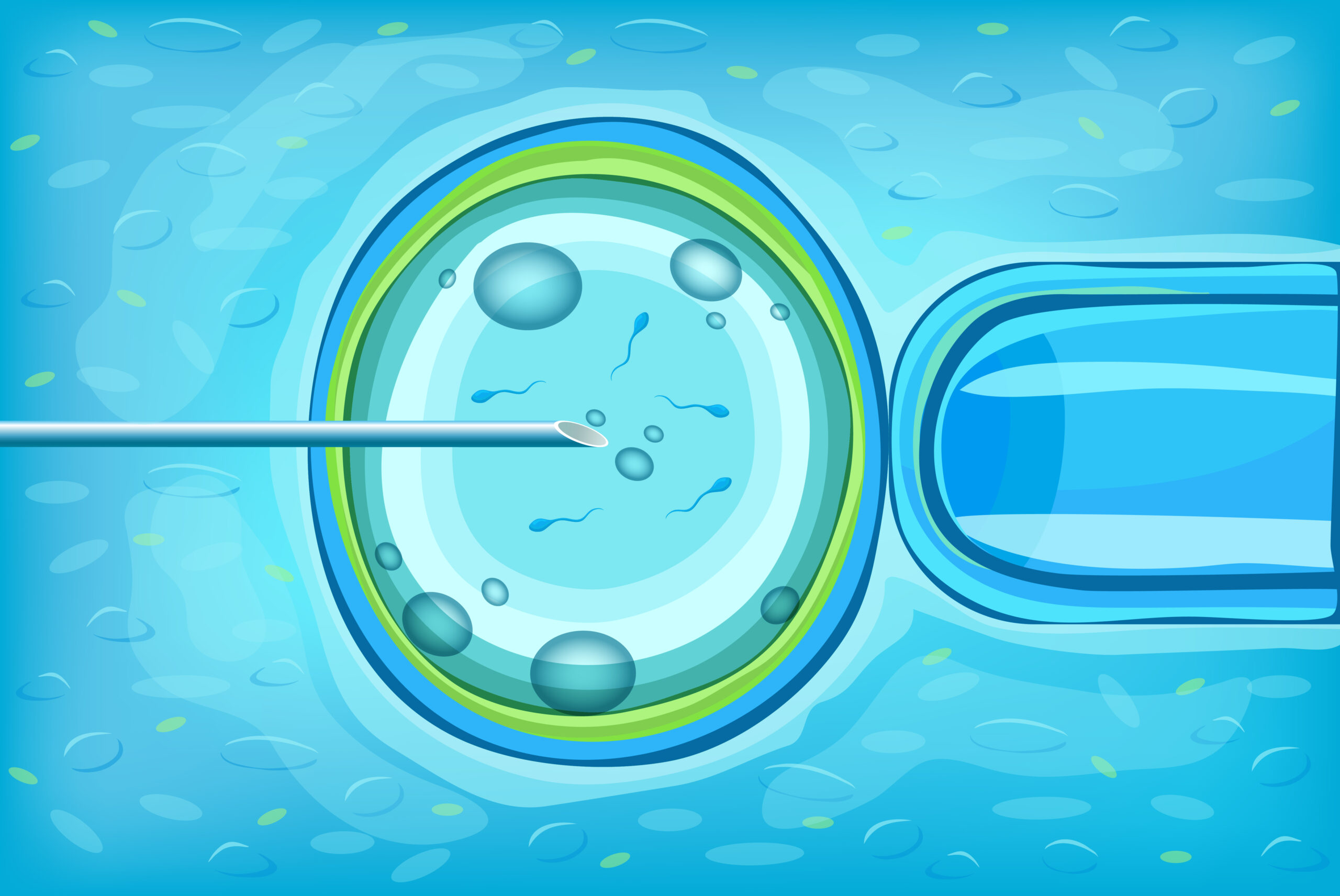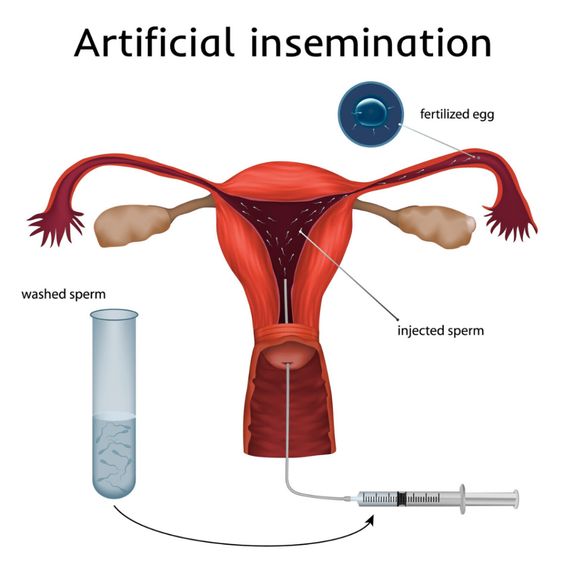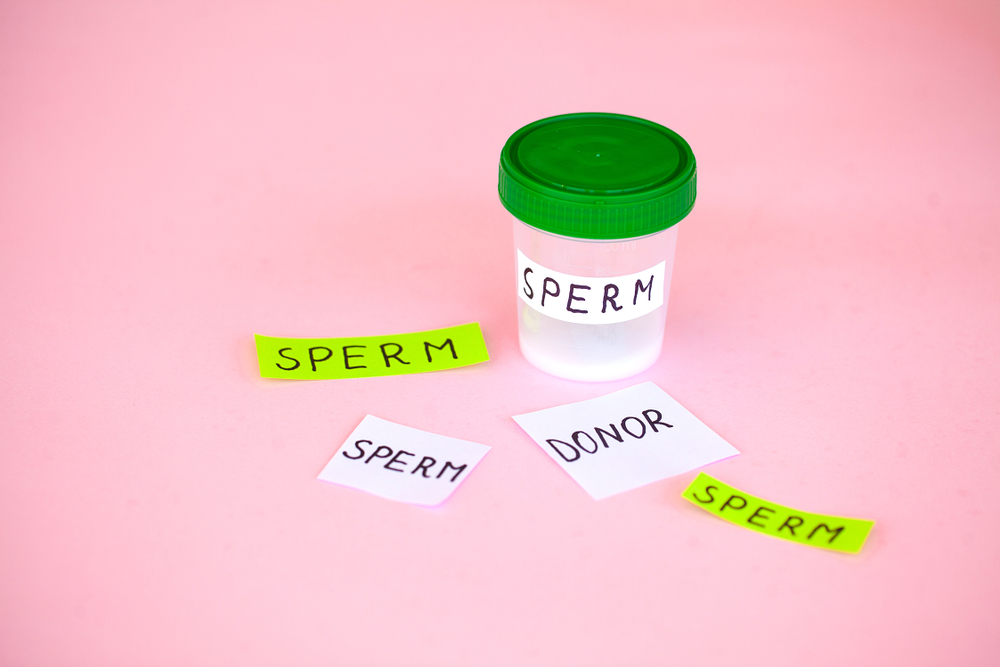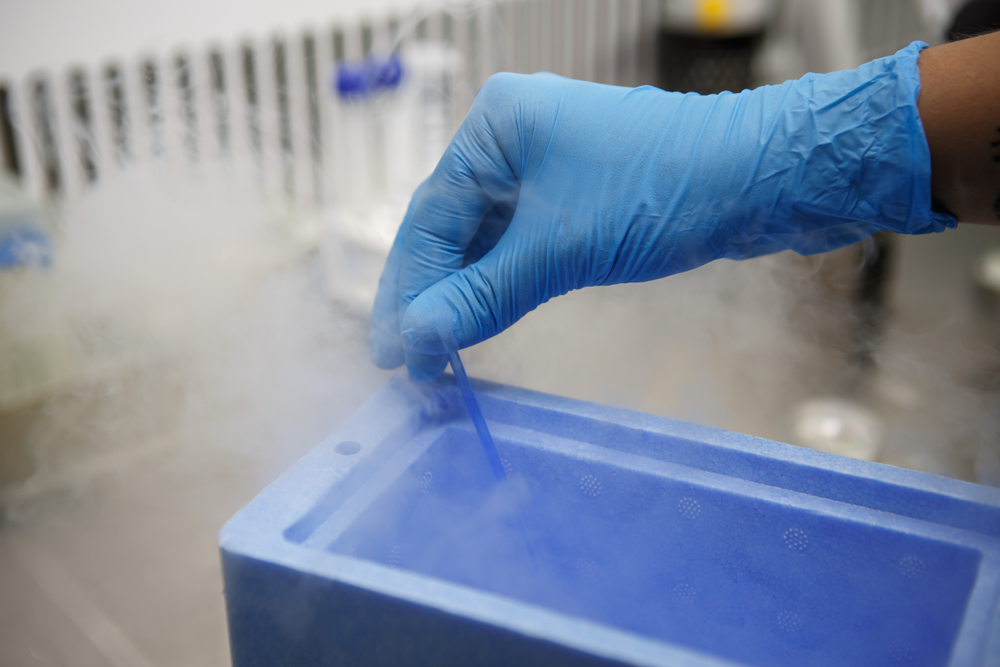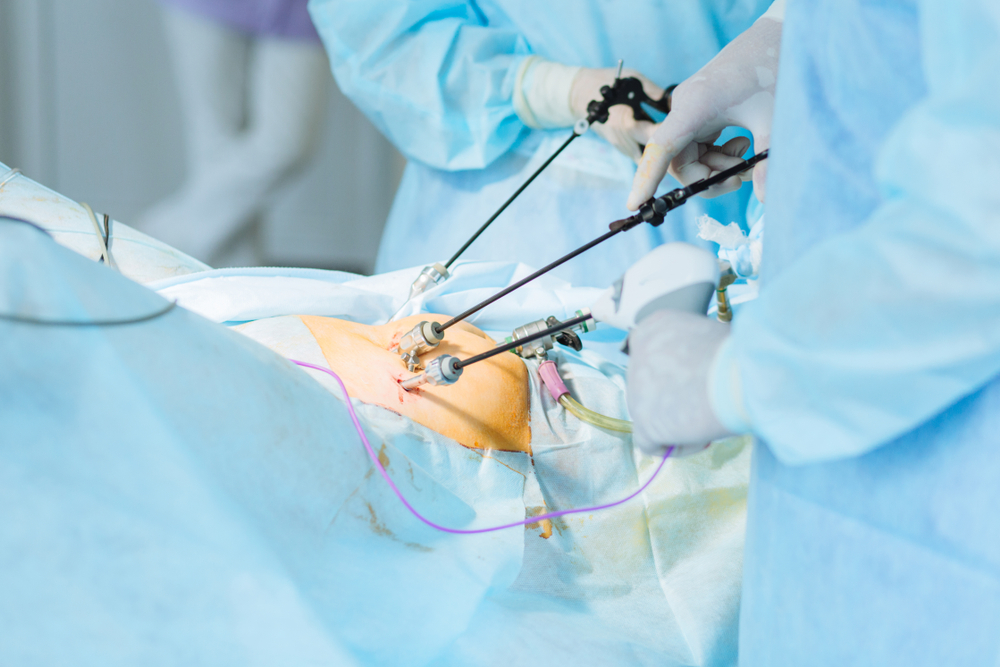






World-Class Technology
We are equipped with all the modern techniques and technologies for infertility treatments. Our top-class IVF lab has recently been upgraded as per the latest international recommendations.

Experienced Doctors & Staff
Dr. Lavleen Sodhi has been running the IVF centre since 2007 & it was the first in the region. With the best team of doctors & staff, we have successfully achieved results at par with the best institutes worldwide.

Patient-Friendly Environment
Dr. Sodhi's Healthcare Multispeciality Hospital and IVF Centre provides the perfect ambience and comfortable environment to all patients. Also, there is complete transparency in the treatment.
Empanelment
Our centre is empaneled with some of the best companies in the country.
- Icici Lombard
- Future Genera
- Med Save
- PARAMOUNT HEALTH CARE
- MEDI ASSIST INDIA
- UNIVERSAL SOMPO
- RELIANCE GENERAL INSURANCE
- BAJAJ ALLIANZ
- STAR HEALTH CARE
- MED HEALTH CLINIC
- MAX BUPA
- ADITYA BIRLA
- AKSHA TPA
- GHPL
- VIDAL HEALTH CARE
- TATA AIA
- FHPL
- KOTAK MAHINDRA
- VIDAL HEALTH CARE
- HDFC ERGO SAFEWAY
- BHARTI AXA
- VIPUL MED CORP
- PARK MEDICLAIM
- TTK
- GHPLTPA
- DHS
- MD INDIA
Why Choose Us
When it comes to your fertility care, you want the best. Dr. Sodhi's Healthcare Multispeciality Hospital and IVF Centre offers the best investigative procedures for infertility in men and women. We are equipped with world-class technology and state-of-the-art infrastructure which caters to infertility treatments like IUI, IVF, ICSI, Sperm donor, Egg Donor, Embryo Freezing, Blastocyst Culture and Transfer, Laparoscopy, Hysteroscopy, and more. In addition to your primary fertility physician, we have put together an integrated support team of experienced nurses, psychologists, and staff who work together to address your physical, emotional, and financial concerns. Choose Dr. Sodhi's Healthcare Multispeciality Hospital and IVF Centre to help build your family!

Dr. Sodhi’s Health Care Multispecialty Hospital & IVF Centre
Dr. Sodhi’s Health Care Multispecialty Hospital & IVF Centre has been running since 2007, employing the latest ‘State of the Art’ technologies for the treatment of infertile couples. The ultra-modern hospital is located in Mohali, a highly progressive township, adjoining Chandigarh.
Dr. LAVLEEN KAUR SODHI
DIRECTOR & Sr. CONSULTANT.
Obstetrician & Gynaecologist, Infertility specialist

Dr. Lavleen Kaur Sodhi is the Director, Sr. Consultant Obstetrician & Gynaecologist and Infertility specialist at Dr Sodhi’s Health Care Multispeciality Hospital & IVF Centre. She is also a visiting consultant at Fortis Hospital, Mohali & Cloud Nine Hospital, Chandigarh. Dr Lavleen Kaur has an illustrious academic record to back her present competencies. She completed her MD in 1995 from the prestigious P.G.I Chandigarh & her D.N.B.E from New Delhi, both in Obstetrics & Gynecology. During her M.B.B.S she also bagged the ‘Silver Medal’ in General Surgery in the final professional examination.
Happy Couples
Our Videos
Blog
 Ovarian Cyst: Types, Causes, and Symptoms March 30, 2023
Ovarian Cyst: Types, Causes, and Symptoms March 30, 2023The ovarian cyst is a common health condition in which one often experiences little to no discomfort at all. Thankfully these cysts are not harmful. Moreover, within a few months, most cysts disappear without therapy.
Yet, taking this condition lightly is not recommended. Consulting the best gynecologist in Chandigarh and undergoing regular pelvic examinations can help safeguard your health. Keep reading; as we shed light on ovarian cysts’ types, causes, and symptoms in this post.
What is Ovarian Cyst?
Ovarian cysts are small blisters filled with fluid. They usually develop in one of the two ovaries. Most ovarian cysts happen due to hormonal changes during the menstrual cycle. They settle down naturally over time. However, you should still consult the best gynecologist in Mohali to monitor their size and growth.
Types of Ovarian Cysts?
There are different types of cysts in ovaries. Let us have a look at them:
Functional Cysts
They are the most common ovarian cysts that are usually not harmful. Also known as simple cysts, functional cysts develop during the ovulation cycle. They usually shrink within 60 days without any treatment. However, you should seek your doctor’s opinion in this regard. Functional cysts are of two types – Follicular cysts and Corpus Luteum cysts.
- Follicular Cysts – An egg sometimes breaks off from its follicle midway through the menstrual cycle. After that, the egg descends into a fallopian tube. When the follicle doesn’t break, a follicular cyst forms. It keeps its egg inside and grows instead of releasing it.
- Corpus Luteum Cysts – When a follicle contracts after releasing its egg and starts to make estrogen and progesterone. These hormones help in the conception process. At times, the egg’s original entrance can occasionally become blocked. It leads to fluid collection in the corpus luteum. Over time, it turns into a corpus luteum cyst.
Other Cysts
Not every ovarian cyst is formed in response to the menstrual cycle. Although these cysts aren’t always harmful, you should get them checked with the top gynecologist in Mohali. Here are their types:
- Cystadenomas – These cysts develop on the surface of the ovary. Moreover, they are filled with mucus-like, thick fluid.
- Teratomas (Dermoid Cysts) – Teratomas cysts are formed of cells that make different types of tissues in our body. For instance, cells of teeth, skin, hair, and brain.
- Endometriomas – This type of cyst is made with endometrial tissues. It is the same tissue that women bleed during periods.
- Ovarian Cancer Cysts – These cysts or tumors comprise solid masses of cancerous cells. Doctors usually recommend ovarian cyst surgery in this case.

Causes of Ovarian Cysts
What causes an ovarian cyst? According to the top gynecologist in Chandigarh, here are the top causes of ovarian cyst:
- Abnormal Cell Reproduction – Unusual cell reproduction is one of the major causes of ovarian cysts. It leads to the formation of Cystadenomas and dermoid cysts.
- Endometriosis – It is a condition where the endometrium, the tissue that lines the womb, develops in other organs. For instance, in the fallopian tubes, ovaries, bladder, intestine, vagina, or rectum. It leads to the development of blood-filled cysts in ovaries. This condition is also known as PCOS – Polycystic Ovary Syndrome.
- PID – Pelvic Inflammatory Disease is a pelvic infection that spreads to the ovaries, leading to cyst formations.
Symptoms of Ovarian Cysts
Although most cases are asymptomatic, large or severe ovarian cysts show the following symptoms:
- Pelvic Pain – What is the ovarian cyst pain location? The pain will start below the belly button extending to either side of the body. You may experience occasional pelvic pain spells. They will go on their own without any medication. The intensity can be in the range of mild to excruciating.
- Heaviness – A constant feeling of heaviness or pressure in the abdomen or belly can also indicate the presence of ovarian cysts.
- Bloating – Sometimes, ovarian cysts make your lower belly feel bloated or puffy. It usually happens on the side where the cyst is located. Moreover, you can also feel puffiness in this area.
When Should you See a Doctor?
Consult the best doctor in Mohali on experiencing these symptoms. Moreover, if you reside in Chandigarh, here are the tips to find the best gynecologist in Chandigarh.
- Severe, sudden, and continuous pelvic or abdominal pain.
- High fever coupled with vomiting or nausea
- Signs of shock. For instance, rapid breathing, clammy skin, chills, weakness, or light-headedness.
Who is at Risk?
Ideally, any woman with ovaries is vulnerable to developing cysts in ovaries. However, the likelihood increases with these factors:
- Age – Women in their reproductive age and yet to attain menopause are at a higher risk of developing ovarian cysts.
- Family History – You are also at a higher risk of having cysts in ovaries if you have a family history of it.
- Previous Case – Ovarian cysts tend to recur over time. So, if you had it in the past, the chances of its relapse are higher.
- Pregnancy Status – Many women also develop ovarian cysts during pregnancy. Moreover, if you are planning a pregnancy in your late 30s, consult your doctor to know how to prevent the formation of ovarian cysts.
- Current Health Conditions – Women with hormone problems, endometriosis, etc., are at a higher risk of getting cysts in ovaries.
What size of Ovarian Cyst is Dangerous?
According to the top doctors in Mohali, ovarian cysts that size 5 cm to 10 cm usually need medical attention. The situation should be carefully monitored in women of reproductive age because these cysts can mutate into corpus luteum cysts and polycystic ovaries. However, the cysts’ size cannot predict whether it is benign or cancerous.
Summing Up!
The ovarian cyst is a very common health condition that is usually not harmful. Although there are no tried and tested ways to prevent the occurrence of ovarian cysts, regular pelvic screenings help diagnose abnormalities faster.
You should keep a check on your menstrual cycle. Besides, any abnormal or uncalled-for symptoms should be discussed with the doctor immediately. Consulting the best gynecologist in Mohali to learn about the right ovarian cyst treatment for you.
 Male Fertility Diet: Foods to Increase Sperm Count March 25, 2023
Male Fertility Diet: Foods to Increase Sperm Count March 25, 2023Infertility is a common problem that affects both men and women worldwide. In fact, in India alone, around 10 to 14% of couples get affected by infertility. Its prevalence has made it tough for many couples to start a new family.
Now, there can be many reasons behind infertility in couples. However, in men, the most common causes include low sperm production, any blockages that inhibit sperm delivery, or abnormal sperm function. Some other causes can be injuries, chronic diseases, or even lifestyle choices.
Fortunately, there are ways to increase sperm count. And that’s by increasing your activity level, modifying your diet and reducing stress. If you’re wondering about foods to add to your diet for increased sperm count, then here are the ones you must add:
Note: These food options are not any replacement for your medicines and treatment. Before adding anything to your diet, it’s best to consult a healthcare professional. You must find the best gynaecologist to help you with the overall infertility treatment.
Fruits and Vegetables
There’s no doubt that fruits and vegetables are extremely important to live a healthy life. However, their role in increasing sperm count is just as crucial. There are several fruits that are rich in essential vitamins, natural antioxidants, and folate that may act as a supportive element in your male fertility diet.

Guava, for example, is a rich source of Vitamin C and antioxidants that can help to increase sperm motility and morphology. It can also improve sperm count and reduce deformed sperm cells. Similarly, Bell peppers, which are rich in Vitamin C, E, B6, and folate, contribute to healthy sperm parameters like sperm count and motility.
There are several other fruits and vegetables that are important for a male fertility diet like:
- Bananas
- Blueberries
- Avocados
- Tomatoes
- Pomegranates
- Orange
- Kiwi
- Strawberries
- Mango
- Asparagus
- Carrots
- Spinach and other green leafy vegetables
As these fruits and vegetables are rich in essential nutrients, they are ideal for keeping the sperm free from chromosomal abnormalities. You can call them superfoods that increase sperm volume and add them to your diet.
Walnuts
When it comes to Indian food to increase sperm count, walnuts top the list for their protein and healthy fats. Walnuts can significantly increase sperm motility and morphology, thereby contributing to a successful pregnancy in a couple.

Not just that, the healthy fats in the walnut can produce cell membranes for sperm cells and increase the blood supply to the testicles. All in all, these functions can contribute to good male fertility and reduce toxins in the bloodstream. You can consume a small bowl or 2.5 ounces of walnut for better sperm vitality.
Dark Chocolate
Dark chocolate is one of the most significant foods to help with both male and female infertility, as it’s rich in antioxidants, fibre, iron, and other nutrients. It helps with hormonal balance and ensures good integrity of sperm and female eggs. Additionally, dark chocolate helps to improve sperm count for men. That’s due to the presence of L- Arginine, a type of enzyme, within the same.
Note that the darker the chocolate is, the better for your fertility diet. So, it’s recommended to consume 85% bittersweet dark chocolate for the best results. You can consume a small square or two of dark chocolate to get the benefits for your fertility issues.
Garlic
Garlic is one of the superfoods to increase male fertility and ensure good blood flow in the body. It boosts sperm production and improves testosterone levels thanks to its antioxidant properties. The best thing about garlic is that it’s rich in selenium and Vitamin B6, both of which are responsible for producing healthy sperm.

You may consume about 1 to 2 cloves of garlic for two months. It can significantly increase the sperm in the semen and improve your physical strength. You can also add crushed garlic to salads or make honey-garlic tea as a fertility drink.
Fish
Fatty fish is one of the common Indian foods to increase sperm count and help with fertility. As fishes are high in omega-3 fatty acids, they can help to increase the overall sperm health of men. It can be consumed as an alternative to red or processed meat for a healthy option in the diet.
Now when it comes to fish varieties that can contribute to fertility, you can try out options like salmon and sardines. Both of these varieties are rich in Vitamin B12, arginine, and aspartic acid, all of which are responsible for better sperm count and motility.
Omega-3 fatty acid is also responsible for increasing blood flow in the genitals. It can further help you to stay active during intercourse and have a healthy sex life.
Besides fish, you can try fish oil supplements. It can ensure higher sperm count and increased hormone levels for better fertility.
Oysters
Oysters are a rich source of Vitamin B12, Vitamin D, Zinc, and Selenium. All these nutrients help to increase sperm count and ensure good motility. In fact, oysters are commonly called aphrodisiacs. This means it stimulates sexual desire and boosts sexual performance in men. As Oysters contain Vitamin B12, it also supports adequate sperm development.
If you aren’t fond of the oyster’s taste, you can try other food that’s rich in zinc, like poultry meat, beef, eggs, beans, grains, etc. You can make curries with these options for Indian food to increase sperm count.
What Foods Help in Fast Production of Sperm?
To pace up your sperm production, you can try out some super food as follows:
- Indian Gooseberries
- Liver
- Tomatoes
- Brazil nuts
- Pomegranates
Meanwhile, you should stay away from fried foods and soy products to increase your sperm count. Also, limit alcohol consumption to moderate levels, so you can see faster effects. You must also satisfy your unhealthy food cravings with healthy options.
To Conclude
So these were some of the foods to increase male fertility. You can add these food options to your diet and improve your sperm count. Make sure to follow a healthy lifestyle along with a good diet, and you may see the difference soon.
 Ways to Cope with Postpartum Mental Issues March 22, 2023
Ways to Cope with Postpartum Mental Issues March 22, 2023The feeling of holding the apple of your eye for the first time is beyond words. It is one of the most joyous and significant life occurrences for a new mom who eagerly awaits this moment. However, even though having a new infant can be exciting and rewarding, there are also times when it can be challenging and stressful.
This phase is called postpartum depression or baby blues. It is a mild sadness or loneliness episode that can last a few days or a week. The guidance of the best gynaecologist in Mohali and the support of your loved ones can immensely help during this time. In the meanwhile, here are some ways to handle Postpartum depression.
Is Postpartum Depression or Anxiety Real?
Postpartum stress or depression is a common condition that may develop after having a child. It usually begins to affect within the first three weeks of the delivery. Women who undergo this condition might feel hopeless, sad, depressed, or guilty for not caring enough for their infant.
Moreover, second-time mothers can also suffer from postpartum depression. The good news is that this condition is completely manageable under the consultation of the top gynaecologist in Chandigarh. Their expertise and experience can help mothers cope with postpartum stress or anxiety.
Symptoms of Postpartum Mental Issues
According to the top gynaecologist in Mohali, the common symptoms indicate the presence of postpartum mental issues in a new mother.
- Irritability, anger, or restlessness
- Sadness or a sudden feeling of crying
- Guilt or worthlessness
- Over-concerned about the safety of the infant
- No or little energy
- Fear of hurting the baby
- Unhealthy eating habits
- Chest pain, headache, rapid heartbeat, or tingling sensation in feet or hands
- Irregular sleeping patterns
- Trouble recalling things or making decisions
- Not feeling like doing any activity whole day
Ways To Handle Postpartum Depression
Here are some useful tips to help you overcome postpartum mental issues.
Maintaining a Healthy Diet
Research studies reveal that what you eat significantly impacts your emotional health. So, consuming nutritious food can help improve your mood and make you happy. For instance, you can consume fermented foods like probiotics and yoghurt. Moreover, bananas, oats, berries, nuts and seeds, beans and lentils, and coffee can also help supply relevant vitamins and minerals to the body. Avoid eating processed or junk food. Instead, you can satisfy your unhealthy food cravings with these healthy options.
Get Some “Me Time”
You might feel confined to nursing on the sofa. Your workload, household duties, or those of your older kids can also make you feel overburdened. Don’t try to handle these pressures alone; ask for assistance. For example, say yes to your family members’ offer of complimentary child care. Moreover, allow your partner or another responsible adult to watch the child for an hour or two.
Setting aside time each week for “me time” could be beneficial. You can use this opportunity to unwind, even if you can only leave the house between nursing sessions. Take a walk, nap, do some easy and safe postpartum exercises, watch a video, or meditate. Experts call it one of the best ways to handle postpartum depression.
It’s Okay to Rest
New mothers often suffer from the guilt of resting or sleeping while the baby is awake. Are you also one of them? If so, please get yourself out of it as soon as possible. Do you know that the chances of postpartum depression are 3.34 times higher in women with poor sleep quality than others? It applies to mothers who sleep less than four hours at night.
Infants usually do not sleep through the night when they are young. Therefore, you might find it beneficial to rest or get to bed early when the baby sleeps. Moreover, if breastfeeding, think about pumping a bottle so your partner can handle one or two overnight feedings.
Avoid Isolation
The days might pass quickly, leaving you occasionally feeling alone. However, a Canadian Journal of Psychiatry study reveals that sharing emotions can improve mood and keep postpartum issues at bay. After frequently speaking with seasoned mothers who had previously experienced postpartum anxiety and depression, researchers found that women had lower levels of depression.
This finding proves that the power of social interaction cannot be denied. So, try to get out and ask moms and other adults for help. You can also join online forums and social platforms to keep yourself busy and away from isolation.
Create a Support Network
Sometimes, you are uncomfortable sharing your feelings with your family and friends. Creating a support network can help you immensely during this time. Many online and offline platforms can help you while you suffer from postpartum mental issues. For instance:
- Call the official postpartum depression hotline numbers for help.
- Join online forums to share what you are going through.
- Call your healthcare provider, gynaecologist, or obstetrician for guidance.
- Contact the healthcare services of your community.
- Chat online with other mothers on issues like postpartum depression, etc.
- Reach out to other local support groups for assistance.
It is one of the best ways to handle postpartum depression.
Who is at Risk?
Although postpartum depression can happen to anyone, some factors make you more prone to this condition. Make sure you share all the symptoms with your gynaecologist in such cases.
- Having a family history of postpartum stress or depression
- Relationship or marital conflict
- Limited or no social support
- Uncertainty about the pregnancy
- Premature birth or ailments in the infant
- Mothers younger than 20 are usually at a higher risk of postpartum depression.
- Infants with special needs
Bottom Line
Postpartum mental issues usually go away within six to seven months, depending on diet, sleep, and lifestyle habits. However, if you experience spells of confusion, disorientation, or compulsive thoughts, call the best gynaecologist in Mohali immediately.
You can effectively overcome these symptoms with the right medication and lifestyle changes. Last but not least, please understand that it is just a phase which shall pass soon. So concentrate on your mental well-being, indulge in creative activities, and cherish these moments with your baby.
 High-Risk Pregnancy: All You Need to Know March 18, 2023
High-Risk Pregnancy: All You Need to Know March 18, 2023A high-risk pregnancy does not always mean your pregnancy will be more challenging than a low-risk one. However, it may sometimes mean you must consult the top gynaecologist in Mohali for more detailed and frequent monitoring.
Whether this is your first or third pregnancy, hearing your doctor describe your pregnancy as high-risk can be frightening. However, “high-risk pregnancy” refers to a broad range of common pre-existential conditions you had before conceiving. Keep reading on to get all the facts about a high-risk pregnancy.
Causes of High-Risk Pregnancy?
According to an experienced gynaecologist in Mohali, here are the top causes of high-risk pregnancy that you should know about:
- Age – Age can be vital in determining whether the pregnancy is high-risk. According to doctors, women under 17 or older than 35 are at a higher risk of having a high-risk pregnancy. Pregnancy during this age can lead to low birth weight, premature birth, preeclampsia, gestational diabetes, and caesarean birth. Consult the best gynaecologist in Chandigarh to know more about the High-risk pregnancy age.
- Weight – Women underweight or overweight during conception have a higher probability of high-risk pregnancy. An experienced gynaecologist can help you understand how to manage a healthy body weight.
- Health Conditions – Certain health conditions also make women vulnerable to having a high-risk pregnancy. For instance, high blood pressure, depression, diabetes, thyroid, asthma, epilepsy, heart disorders, etc.
- Multiples – Compared to twin and singleton pregnancies, triplet pregnancies have a greater risk of foetal and maternal morbidity and complications.
- Past Conditions – Women with severe issues during their previous pregnancies are also vulnerable to high-risk pregnancies. For instance, pregnancies like premature delivery or genetic defects in the infant.
- Other Causes – Substance abuse, smoking, and alcohol can also increase your chances of high-risk pregnancy. Meet the top gynaecologist in Mohali to get the list of high-risk pregnancy conditions. It can immensely help!
Working with the top gynaecologist in the city is crucial to managing current and probable health issues if your pregnancy is labelled high-risk.
When to See the Doctor?

Experienced gynaecologists in Chandigarh can help manage your high-risk pregnancy effectively. First, however, here are some high-risk pregnancy symptoms you must immediately bring to your doctor’s attention. if you live in Chandigarh or nearby areas, then you can visit Dr. Lavleen Kaurd Sodhi, she is expert in high-risk pregnancies and runs the best maternity hospital in tricity.
- Watery vaginal discharge
- Vaginal bleeding
- Cramping or pain in the lower abdomen
- Severe headaches
- Chills or fever
- Low fetal activity
- Burning sensation or pain while urinating
- Change in vision
- Severe, sudden swelling in hands, fingers, and face
- Persistent nausea or vomiting
- Dizziness
- Thoughts of harming the baby or yourself
How can you Promote a Healthy Pregnancy?
Stick to the fundamentals whether you know you’ll have a high-risk pregnancy or merely want to do everything possible to avoid one. For instance:
- Take a Preconception Appointment – Consult your doctor if you plan to getting pregnant in your late 30s. Before getting pregnant, your doctor can advise you to take a daily prenatal supplement with folic acid. Moreover, try to maintain a healthy weight before you get pregnant. If you are undergoing treatment for any condition, your gynaecologist can customise your high-risk pregnancy treatment accordingly. Your doctor may also discuss the risks of having a child with genetic disorders.
- Regular Prenatal Care – Prenatal visits are crucial as it helps the doctor to diagnose your and your child’s health. Your gynaecologist may also refer you to a maternal-fetal medicine or genetics expert for a detailed screening.
- Avoid Risky Substances – Quitting consumption of illegal drugs, smoking, and alcohol can be one of the best things you can do for your high-risk pregnancy. Moreover, you can anytime go for counselling to manage your withdrawal symptoms. Apart from this, disclose all the medications and supplements you are currently taking to help your gynaecologist identify your most effective treatment plan.
- Stay away from Infections – Some basic hygiene habits can help significantly manage high-risk pregnancies. For instance, avoid eating uncovered and street-side food or washing hands frequently. Eating raw vegetables, undercooked meat, and shellfish can also make you vulnerable to Toxoplasma gondii. Consider getting immunisations if your gynaecologist recommends it.
High-Risk Pregnancy Diagnosis
Receiving thorough prenatal treatment at an early stage is essential. It is the greatest way to identify and treat a high-risk pregnancy. In addition, such pregnancies may require additional monitoring throughout your pregnancy. Here are some tests to ascertain if the pregnancy is high-risk:

- Targeted or Specialised Ultrasound – Gyneacologists sometimes recommend a specialised or targeted ultrasound. It is an imaging technology that uses high-frequency sound waves to develop images of the unborn baby. It helps in identifying suspected developmental issues.
- Prenatal Cell-Free DNA (cfDNA) Screening – In this process, DNA from the mother and the foetus is taken from a sample of the mother’s blood. The foetal DNA is then checked for the increased likelihood of particular chromosome issues.
- Invasive Genetic Screening – Your doctor may advise chorionic villus sampling (CVS) or amniocentesis. Your doctor will conduct an amniocentesis procedure here. The sample of the amniotic fluid, which surrounds and shields a developing infant during pregnancy, is taken from the uterus. This screening is usually performed after week 15 of pregnancy. It can effectively diagnose severe brain or spinal cord issues and specific genetic conditions (neural tube defects).
- Ultrasound for Cervical Length – Your doctor can prescribe this ultrasound to measure your cervix’s length. It is a great way to check if you are at risk of having preterm labour.
- Lab Tests – Regular urine tests can help identify UTIs and screen you for syphilis and HIV.
- Biophysical Profile – This prenatal scan aims to examine a baby’s health. It might only entail an ultrasound to assess the health of the foetus or foetal heart rate monitoring based on the ultrasound results (nonstress test).
Bottom Line
So, it was all about high-risk pregnancies, you should know. Feeling overwhelmed about it initially is completely natural. However, the best guidance and support can make things much safer and smoother.
You should consult the best gynaecologist near you for a healthy delivery. Here’s how you can find the best gynaecologist in Chandigarh. Lastly, eat healthily, do light exercises, and maintain your weight, blood sugar, and blood pressure levels.
 Are Heavy Periods a Sign of Infertility? March 15, 2023
Are Heavy Periods a Sign of Infertility? March 15, 2023No, heavy periods are not a sign of infertility. In fact, no scientific evidence proves any relationship between heavy periods and fertility. However, you should pay special attention to your period flow as it is a crucial indicator of your overall health.
According to healthcare experts, both light and heavy period flow can be a sign of a hormonal imbalance that can be corrected with medications. Consulting the top gynaecologist in Mohali for regular screening can help keep severe health issues at bay. Stay with us as we shed some light on this issue.
What is Considered a Heavy Period?
Menstrual flow that lasts longer than seven days is known as menorrhagia. Heavy bleeding is another possibility. How can you tell if you are bleeding heavily? Heavy bleeding is the need to change your tampon or pad in less than two hours or the passage of blood clots at least a quarter size.
You should consult the best gynaecologist in Mohali if you experience this period flow. This condition can also lead to anaemia. It can make you feel weak or exhausted. Moreover, it can also result in additional medical issues.
What are the Causes of Heavy Periods?
Are you worried that your heavy periods are impacting your fertility? Leave all your worries aside and meet the best gynaecologist in Chandigarh to understand everything about female infertility. Moreover, heavy periods can be due to many reasons like:
- Uterine-Related Problems – Tumours are growth in the uterus that is benign in nature. They are known as polyps or fibroids. This condition can interfere with pregnancy. However, you should consult the top gynaecologist in Mohali for the right and most effective fibroids treatment.
- Uterine or Cervical Cancer – Some pregnancy control methods, like an intrauterine device (IUD).
- Pregnancy-Related Problems – Issues like a miscarriage or an ectopic pregnancy can also develop abnormal bleeding during periods. Abortion occurs when the foetus, or unborn child, passes away inside the uterus. A dangerous condition known as an ectopic pregnancy occurs when a foetus develops outside the uterus.
- Endometriosis – Endometrial tissue inside your uterus can develop on other abdominal organs or the outside of your uterus, a disease known as endometriosis. It may result in discomfort and unusual bleeding. It can also lead to a heavy period after trying to conceive.
- Irregular Menstruation – You might have heavy bleeding or occasionally miss periods if your menstrual cycle is irregular. Additionally, your period may result in excruciating pain or cramping.
- Problems with Ovulation – If your ovaries don’t consistently produce eggs (ovulate), you may experience irregular periods. If you do experience menstruation, it may be heavier than normal.
- Bleeding Issues – Bleeding disorders like haemophilia and other congenital blood conditions can also lead to excessive menstrual bleeding.
- Thyroid Disorder – Thyroid dysfunction is one of the major causes of menstrual abnormalities. It can lead to heavy periods. You should consult an experienced gynaecologist in Chandigarh to manage this condition. Leaving it untreated can also impact your pregnancy attempts.
Sometimes, medicine like Aspirin and others can lead to heavy period bleeding. If you experience this kind of bleeding and your gynaecologist has examined you normally, you should be tested for a bleeding condition.
Symptoms of Heavy Periods
Menstrual cycles with unusually heavy or extended bleeding are referred to as menorrhagia in medicine. Although excessive menstrual bleeding is a common cause for worry, menorrhagia is a completely curable condition. However, trust the best gynaecologist in Mohali for the right diagnosis and treatment. Menorrhagia symptoms and signs can include:
- Soak through one or more tampons or sanitary napkins each hour for several hours.
- Using two types of sanitary pads to regulate your menstrual discharge
- Waking up during the night to alter sanitary protection
- A week or more of bleeding
- Blood clots bigger than a quarter passing
- Restricting everyday activities because of a heavy period
- Anaemia symptoms like exhaustion, lethargy, or shortness of breath
When to See the Doctor?
Here are the top conditions where medical intervention becomes crucial.
- Heavy vaginal flow lasts longer than two hours, soaking at least one pad or tampon per hour.
- Any vaginal bleeding following menopause, including bleeding during periods or leaking irregularly.
- You need to line your underwear in various methods to prevent stains.
- When you are bleeding for more than seven days.
- You are unable to carry out your everyday tasks because of an unusual menstrual flow.
- Insufficient blood flow is causing sleep interruptions, and you need to get up in the middle of the night to replace your sanitary pad.
- If you are passing considerably large-sized blood clots during periods.
- Constant abdominal and pelvic discomfort that never stops.
- Experiencing exhaustion, lethargy, and shortness of breath are signs of anaemia.
Diagnosis
Your gynaecologist can prescribe the following tests and screenings to examine your issue of heavy periods:
- A transvaginal ultrasound examination to look for womb and ovary structural abnormalities
- Internal (vaginal) inspection to check for abnormalities in the cervical and vaginal regions.
- A test to detect cervical cancer is called a Pap screening.
- Vaginal biopsies to look for an infection there.
- Gynaecologists can recommend more precise MRI scans or transabdominal scans for young girls who are not eligible for internal examination or scan.
Besides these tests, your gynaecologist can also prescribe some blood tests like:
- A full blood count test is to determine whether you have anaemia.
- A test for thyroid function because thyroid disease can impact menstruation.
- If your menses have been heavy since adolescence, get a coagulation screen.
- If an ovarian cyst is suspected, it may also be necessary to obtain ovarian tumour markers.
Bottom Line
Heavy periods are curable and not a prominent sign of infertility. However, consult the top gynaecologist in Mohali for the right treatment and concerning infertility warning signs. Meanwhile, you should maintain a healthy weight, blood sugar, and blood pressure levels. Additionally, quit processed food and satisfy unhealthy cravings with these healthy options. These simple steps can immensely help.
 PCOS Diet Plan To Get Pregnant March 10, 2023
PCOS Diet Plan To Get Pregnant March 10, 2023PCOS, or Polycystic Ovary Syndrome, is a common hormonal disorder among women. As per an estimation, it was concluded that every one in five Indian women suffers from PCOS. So, it’s not a new condition among Indian women.
While PCOS has been linked to making conception difficult, it’s fairly possible for a woman with PCOS to recover from the condition and conceive naturally. And how is it possible? Through lifestyle changes.
With a proper diet, balanced blood sugar levels, and healthy lifestyle modifications, it’s certainly easy to get pregnant with PCOS. You just need to follow a PCOS diet plan that’s rich in high-fibre, natural/unprocessed food and leafy greens for the best results.
Here’s a full-fledged guide to help you out with the same:
Keep those Carbs in Check
Women suffering from PCOS should limit their carb intake and keep it around 40% of the total calories. That’s because carbohydrates are linked with high insulin levels. This is especially for refined carbohydrates that are in food like white rice, sweets, etc.
Refined carbohydrates are related to high levels of insulin, which can eventually make it tough to process the carbohydrates. So, it’s recommended to eat food with a low glycemic index.
With less carb food in your PCOS diet plan, you can stay assured of low androgen levels. There’ll also be lesser chances of issues that are caused due to androgen, like acne, irregular menstruation, excessive hair growth, etc.
So, keep your PCOS diet free from too much pasta, pizzas, or white carbs. Ofcourse, you can have them sometimes, but don’t go overboard with them. As nutrition affects fertility in females, you should include food rich in essential nutrients.
Fatty Fishes Instead of Processed Meat
Processed meat may taste delicious, but it’s recommended to avoid it with PCOS as it can be pro-inflammatory in the gut. So, put a halt on fast food hamburgers and switch to healthier options with rich protein and healthy fat.

You can eat fish like tuna, mackerel, and salmon instead of processed meat. Not only are these anti-inflammatory, but they are also ideal for increasing the androgen levels in women.
Fishes are also rich in Omega-3 fatty acids, which is again perfect for battling conditions like PCOS. Meanwhile, you must stay away from unhealthy fats, as they can increase estrogen levels and make your PCOS condition worse.
Probiotics from Fermented Food
When we talk about a healthy gut, women suffering from PCOS lack it more than the ones who don’t have the condition. That’s why it’s recommended to consume fermented food and food options that are rich in probiotics to keep the gut healthy. The main purpose here is to increase the healthy bacteria (or the healthy helpers) inside the stomach.

With good bacteria, you can stay assured of having better digestion and overall mood. In fact, it can also keep weight in check and prevent any disease manifestation. To mention some good probiotics, you can include yoghurt in your diet. It’s also a staple in a regular Indian diet, so you wouldn’t struggle to get them in the market.
You can also add other fermented food like pickles, miso, and kimchi. As for some common Indian dishes that are fermented and a blessing for PCOS conditions, you can try sprouts, Idly, Dhokla, Dosa, etc. Add them to your breakfast for a hearty and PCOS-friendly meal.
Herbs and Spices
You have many herbs and spices in your kitchen that works wonders for PCOS. So, make sure to incorporate them into your diet for better support in your PCOS recovery. Cinnamon, for example, is a spectacular spice with anti-inflammatory and anti-diabetic properties. So, you can add it to your food to keep those blood sugar levels and cholesterol levels in check. It’s also ideal for increasing progesterone production to maintain the hormonal balance.

Similarly, you can use turmeric to boost immunity and encourage quick healing. It’s also quite efficient for reducing irregular period symptoms, weight gain, and sleep issues that may occur due to PCOS. The curcumin in turmeric can help to manage insulin resistance and keep those blood sugar levels in check.
Some other herbs that are ideal for PCOS management include
- Ginger
- Fenugreek
- Ashwagandha
- Basil
- Shatavari
Example of PCOS Diet Plan to Get Pregnant
NOTE: This is not a replacement for any diet plan that’s directed by your gynaecologist or dietitians. It’s just a sample to give you a clear idea about the PCOS meal plan. Before starting any plan, discuss it with your healthcare professional and do as suggested by them.
TIME FOOD Early Morning 1 glass of lukewarm lemon water (with a pinch of cinnamon) Before Breakfast 1 glass of low-fat milk (without any sugar); Dry fruits like walnuts Breakfast 1 bowl Poha/Upma or 2-3 Oats Idli, 1 cup of Tea/Coffee (without sugar) Mid Morning Any whole fruit Lunch 2 wheat-bran chapatis, ½ cup brown rice, 1 cup homemade vegetables, 1 cup lentils/dal; Non-vegetarians can have chicken (2 pc), fish (1 pc) or egg whites (2 pc) Mid Afternoon 1 glass buttermilk Evening 1 cup bhel/jhalmuri or ½ cup sprouts; 1 cup tea (without sugar) Mid Evening 1 small cup soup (veg or chicken) Dinner Salad, two chapatis or 1 cup vegetable pulao, 1 cup veg curry, 1 cup lentils/dal of your choice, curd; Non-vegetarians can have chicken or egg whites. Bed Time 1 glass of low-fat milk Instead of having huge meals, it’s recommended to have small yet frequent meals for your PCOS diet plan. Also, satisfy your unhealthy food cravings with healthy options.
Do’s of Getting Pregnant with PCOS
Now that you know what you should do in a PCOS diet plan, let’s check out the things that you must do:
- Avoid smoking and alcohol consumption
- Avoid eating too much sugary food or drinks
- Indulge in regular exercises and yoga
- Get adequate sleep (7-8 hours daily)
- Don’t skip your meals
- Eat a big and hearty breakfast
- Don’t neglect your mental health. Understand the importance of mental health while adopting fertility treatments.
- Always stay connected with your healthcare professional.
Final Note
We hope now you know everything that’s needed to get pregnant with PCOS. Besides these do’s and don’ts, you must believe in yourself and hang in there. Things will take a turn for good and quite soon! Don’t give up.
Google Reviews
Thank you Dr. Sodhi Hospital, Staff and Management for providing the best treatment and care. 🤗
The whole staff's dedication to the patients is inspiring.
Each and every person working in Sodhi's healthcare centre is very much caring.THOSE WHO ARE LOOKING FOR A BEST GYNECOLOGIST, PLEASE VISIT SODHI 'S HEALTH CARE.
Staff was also all time available in need.
The hospital has all the facilities and requirements, hygiene is also well taken care of.
Utmost reasonable cost. An affectionate healing touch and bond-like behaviour from Dr. Harpreet, Dr. Sodhi and Dr. Arsh preet Dhiman as well. God bless this clinic to spread many more smiles on others faces.
They explained everything very well, gave the proper medications and care and ensured a Normal Delivery for my First Child
We are very thrilled with them and have recommended them to our family and friends who ask
Dr Loveleen and Dr Harpreet are extremely knowledgeable
Warm regards,
Bhawana
Lastly they even charge for first post surgery consultation which they told was included in package they had given to me but denied afterwards.
Her team, including Dr. Harpreet Kaur and Dr. Palwinder kaur, were also incredibly caring and supportive. Throughout my journey from conception to delivery, they guided me with compassion and professionalism.
The nursing staff at the hospital were equally impressive, providing cooperative and caring service and had good experience with housekeeping services especially room cleanliness.
Thank you to the entire team for making my delivery experience so smooth and stress-free. I always recommended to visit this hospital for getting good services.
Following my C-section delivery, I was unable to breastfeed my baby and needed assistance. The night nurses left my baby hungry for over 5 hours and ignored our calls for help, only to later comment that he was crying excessively because he was supposedly full. This level of negligence is unacceptable.
The hospital mandates that nurses help babies latch for breastfeeding, which is a positive initiative. However, the execution was terrible. The nurses were forceful, and one even hit my baby near the ear. When I objected, she claimed that babies don’t feel pain, ignoring the fact that my baby was crying in distress. Due to this traumatic experience, my baby never managed to latch properly and I had to resort to formula feeding.
The pediatrician only checked on the baby once, despite being expected to visit daily and provide discharge instructions. He also failed to advise us to start the mandatory vitamin D medication for the baby. Due to this negligence, my baby experienced jaundice after a few days and was admitted to another hospital for another 3 days.
More than 1.5 years later, I still feel the pain and trauma from this experience. Additionally, the staff’s habit of calling patients "Rajje" was disrespectful, especially since many patients were older and deserved respect.
I cannot recommend this hospital for delivery procedures due to the unprofessional and insensitive behavior of the nursing staff.
Dr. Lavleen kaur gave me all the best treatment and advices on each step of pregnancy. She highly skilled in her field and very kind and helpful.
Dr. Harpreet also provided us with full care and support both emotinally and morally.
They both made this journey of pregnancy a worry free process and provided me with full mental comfort.
The facility they run is great and staff is awesomely caring and supportive.
I am very pleased to deal with them and wish that like me whoever comes to them gets their wish to become patents fulfilled.
God bless them and im highly thankful to Dr. Lavleen, Dr harpreet and their team.😊
Thank you
Regards
Dr.Pratibha


